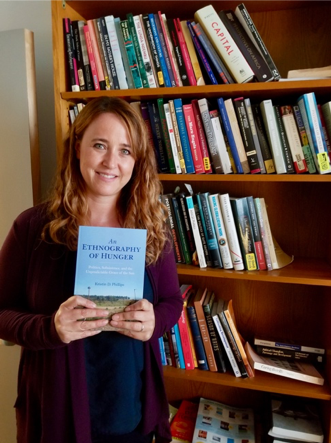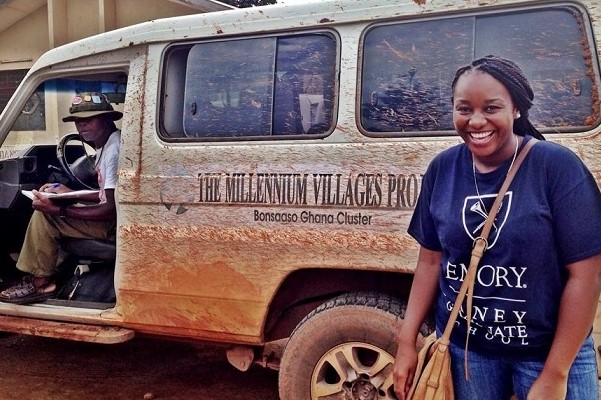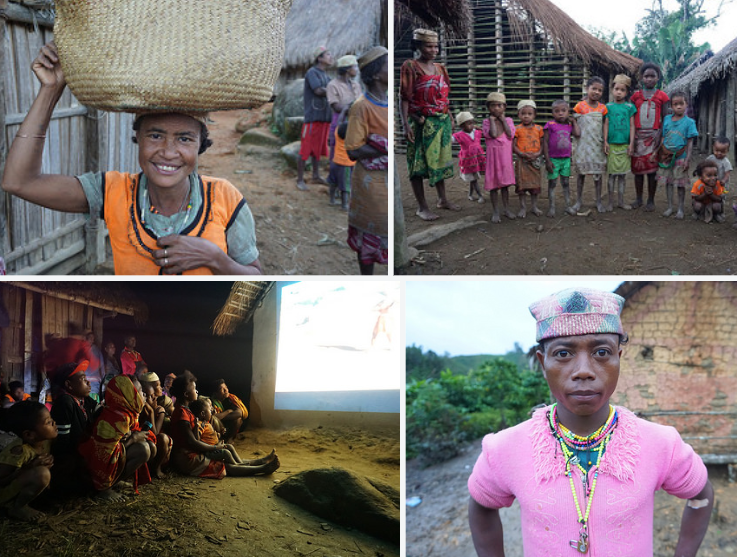MDP Professor Publishes New Book
 Congratulations to Dr. Kristin Phillips on publishing her new book titled, An Ethnography of Hunger: Politics, Subsistence, and the Unpredictable Grace of the Sun. Dr. Phillips is a Senior Lecturer in the Department of Anthropology and faculty member in the Masters in Development Practice Program. She teaches a year-long MDP course on Research Methods.
Congratulations to Dr. Kristin Phillips on publishing her new book titled, An Ethnography of Hunger: Politics, Subsistence, and the Unpredictable Grace of the Sun. Dr. Phillips is a Senior Lecturer in the Department of Anthropology and faculty member in the Masters in Development Practice Program. She teaches a year-long MDP course on Research Methods.
The stereotypical image of development in Africa is that of desperation; people everywhere hungry and helpless with no power to change their situation. However, there is more to the empty narratives we are sold. Dr. Phillips states, “just as there are many faces of Africa, there are many faces of hunger. And just as the continent we call Africa has many interwoven pasts, many interlocking presents, and many possible futures, so hunger has its diverse roots, manifestations, and trajectories.” The intent of this book is to examine hunger in the Singida region of rural, central Tanzania and to challenge some of the stereotypes by attending to the concepts of food, power, and sociality with which hunger is in relation and opposition.
Tanzania is a compelling setting for this research focus because its stable political climate is a relative outlier in comparison to that of neighboring countries. Dr. Phillips notes that Tanzania has experienced a peaceful post-independence history and rapid social and economic change in the wake of global neo-liberal economic policies. Nevertheless, that fast-paced economic growth has only been felt by a small portion of the population. Therefore, this book aims to tell the story of how everyday people experience and manage these global shifts.
Conducting an ethnography of hunger is meant to turn the concept of hunger on its head, diving deeper into the topic and peeling back the superficial layers of imagery surrounding famine, until the true context and ways in which people manage it, emerge. In Tanzania, Dr. Phillips found that the threat of food insecurity is cyclical. It waxes and wanes depending on the season, which has shaped the way people organize themselves and participate in their democracy. Relationships become the primary focus in everyday life when your network determines your access to food. People are forced to navigate the delicate balance of using a rights-based approach to claim food as their human right versus compliance and reciprocity to withstand immediate emergencies. She observed, people use a right-based discourse the more desperate they become, which is why this book illustrates, “how people are theorizing their world, their realities, and making decisions in ways that make the most sense to them.”
Even within the same community, individuals experience development differently. Some are against it because it has been historically extractive, whereas those who can reap the benefits support it. Some of the poorest of the poor experience community development at the expense of their own subsistence. An Ethnography of Hunger wants policymakers to understand this context before writing policy; to understand the complexity of communities and ask themselves in what ways policy makes vulnerable people more vulnerable. Ultimately, this book highlights that we cannot address issues in a siloed manner, “for it is indeed a pattern of relationships, events, structures, discourses, and practices that organize access to food and fundamentally shapes people’s labor, language, politics, and lives.”
If you would like to learn more, Dr. Phillips’ book Ethnography of Hunger is available at the Woodruff Library and for purchase online at http://www.iupress.indiana.edu/product_info.php?products_id=809331
Curriculum
The Emory MDP curriculum combines natural, social, health sciences and management.
FIELD PRACTICUM
The Field Practicum is a core component of the Emory MDP curriculum.
Check out this post on InstagramA post shared by Emory MDP (@emorymdp) on


